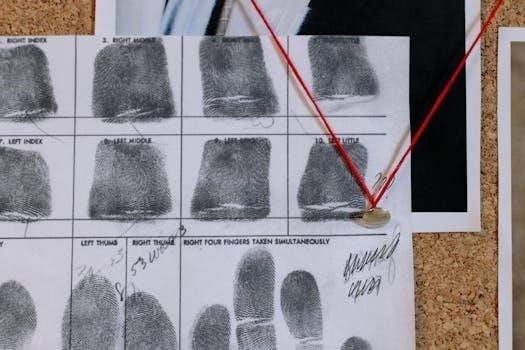Trevor Noah’s memoir, Born a Crime, offers a compelling narrative about his experiences growing up in apartheid South Africa. This book is a powerful firsthand account, detailing the systemic injustices he faced as a mixed-race child.
Overview of Trevor Noah’s Memoir
Born a Crime is a memoir that interweaves Trevor Noah’s personal experiences with the socio-political context of apartheid-era South Africa. It presents a series of vignettes that span his childhood, adolescence, and early comedy career. The book provides a look at the harsh realities of racial segregation and discrimination. Through his narrative, Noah reveals a complex and often challenging upbringing. He shares his journey of navigating his mixed-race identity, his relationship with his mother, Patricia, and the influence of his surroundings. This memoir is both insightful and humorous, offering a unique perspective on a critical period in South African history. It is a powerful story of resilience and adaptation in the face of systemic injustice.

Trevor Noah’s Early Life
Trevor Noah’s birth was literally considered a crime due to apartheid laws prohibiting interracial relationships. This illegality profoundly shaped his early experiences and identity.
The Illegality of Trevor’s Birth
Born to a Black Xhosa mother and a white Swiss father during the height of apartheid, Trevor Noah’s very existence was a transgression of the law. Interracial relationships were strictly forbidden, making his birth a criminal act in the eyes of the South African government. This unique circumstance profoundly impacted his upbringing, forcing his parents to navigate a society that actively sought to erase their family. His illegal status created a world where he was forced to live in the shadows, constantly aware of the precariousness of his family’s situation and the inherent dangers of being mixed-race in a racially segregated nation.
Impact of Apartheid on His Childhood
Apartheid’s pervasive influence shaped every aspect of Trevor Noah’s childhood, creating a complex and often dangerous environment. He experienced firsthand the harsh realities of racial segregation, forced separation, and the constant threat of violence. The restrictions placed on his family due to his mixed-race heritage meant navigating a world where they had to be strategic in their interactions. This created a sense of living in the margins, always aware of the potential consequences of their existence. Apartheid was not just a political system; it was a daily reality that molded Trevor’s understanding of the world and his place within it.
Family and Relationships
Trevor’s family, especially his mother, Patricia, played a pivotal role in his life. Their relationships were complex, shaped by apartheid and cultural differences, yet deeply impactful and loving.
Patricia Noah’s Resilience
Patricia Noah, Trevor’s mother, displayed extraordinary resilience throughout his childhood and adolescence. Her unwavering defiance against apartheid’s oppressive laws, and her determination to provide a loving and nurturing environment for Trevor, are central themes. Patricia constantly challenged societal norms, risking her safety to ensure her son’s well-being. She navigated complex cultural and racial landscapes with courage and ingenuity. Her influence extended beyond her immediate family, leaving a lasting impact on Trevor’s development and worldview. Patricia’s strength and faith served as a powerful example of perseverance in the face of adversity. She skillfully balanced her love for Trevor with her commitment to instilling in him values of independence and resilience, all while navigating the harsh realities of apartheid-era South Africa.
The Influence of Church and Faith
Trevor Noah’s upbringing was deeply intertwined with the church and Christian faith, which played a significant role in shaping his early life. He grew up navigating the complex interplay between Christian beliefs and traditional Xhosa customs, experiencing both the comfort and the rigid structure of religious institutions. The church provided a sense of community and belonging, offering a space for spiritual growth and social interaction. However, it also presented challenges, as Trevor grappled with the sometimes conflicting messages of faith. This religious background significantly influenced his understanding of morality, community, and the world around him, impacting his personal development and his worldview. The church also served as a backdrop for cultural exchange and social dynamics, highlighting the diverse religious landscape of South Africa.
Experiences and Challenges
Growing up, Trevor navigated complex issues of racial identity in apartheid South Africa. He also discovered language as a powerful tool, shaping his interactions and opportunities in a divided society.
Navigating Racial Identity
Trevor Noah’s mixed-race heritage during apartheid presented unique challenges as he didn’t neatly fit into the rigidly defined racial categories. He was considered “coloured”, a classification that placed him in a liminal space, not fully accepted by either the black or white communities. This identity struggle led him to experience a sense of not belonging and forced him to constantly adapt to different environments. His very existence was a challenge to the apartheid system, making his childhood a constant negotiation of his identity in a society built on racial separation. This navigation shaped his worldview and his understanding of race and belonging.
Language as a Tool of Power
In Born a Crime, Trevor Noah highlights the significance of language as a tool of both power and survival in apartheid South Africa. He showcases how mastering multiple languages, such as English, Afrikaans, and various African dialects, allowed him to navigate different social circles. This linguistic agility gave him an edge, enabling him to move between worlds, access information, and form connections with people from diverse backgrounds. Language becomes a powerful instrument for him to understand and challenge the established power dynamics in his society, ultimately shaping his ability to connect with others.

Themes in ‘Born a Crime’
Born a Crime explores potent themes of resilience, parental influence, and the impact of societal constructs on individual lives. These elements are interwoven throughout Trevor Noah’s experiences in apartheid South Africa.
Resilience and Adaptability
Trevor Noah’s life, as depicted in Born a Crime, is a testament to his extraordinary resilience and adaptability. Growing up in apartheid South Africa, he faced numerous challenges due to his mixed-race heritage. He navigated a complex racial landscape, constantly adapting to survive. His experiences, from dodging police raids to learning multiple languages, highlight his remarkable ability to overcome adversity. This inherent resilience allowed him to not just endure, but to thrive amidst hardship. He learned to navigate a world that was not designed for him. The narrative is a powerful example of adapting to a hostile world.
Parental Influence
The influence of Trevor Noah’s parents, particularly his mother, Patricia, is a central theme in Born a Crime. Patricia’s unwavering faith and resilience significantly shaped Trevor’s character and worldview. She defied apartheid laws to provide a loving and nurturing environment for him. Her courage and determination to raise him in a society that deemed his existence illegal are prominent. The book highlights her struggles and unwavering support, showing how they impacted his life. His father’s presence, though less consistent, also had a significant impact on his perspective. Both parents shaped Trevor’s understanding of identity and societal injustice.
Societal Constructs and Injustice
Born a Crime vividly illustrates the oppressive societal constructs and injustices of apartheid South Africa. The book explores how race and identity were rigidly defined, leading to discrimination and hardship. Trevor’s very existence as a mixed-race child was deemed a crime, highlighting the irrationality and cruelty of the system. His experiences expose the daily struggles faced by black South Africans, from restricted movement to unequal access to resources. The narrative underscores how these constructs affected every aspect of life, from education to personal relationships, shaping the lives of individuals and communities.
Later Life and Education
Trevor Noah’s educational journey post-apartheid involved navigating a changing system. This transition ultimately influenced his path towards a successful career in comedy and television.
Post-Apartheid Education System
After the dismantling of apartheid, South Africa’s education system underwent significant changes, and Trevor experienced this shift firsthand. He transitioned from a predominantly white school to a different learning environment, which presented unique challenges. This move was not just about academics but also about navigating a newly integrated society. The post-apartheid system was still grappling with the legacy of segregation, and Trevor’s experience highlighted the complexities of this transition; His time in this system shaped his understanding of societal constructs and influenced his views on the world. This period was crucial in his development.
Transition to Comedy Career
Trevor Noah’s journey into comedy wasn’t a straight path, but rather a gradual evolution influenced by his unique life experiences. His ability to navigate different cultures and languages, developed during his childhood, became an asset in his comedic pursuits. He began to use his storytelling skills, honed through years of observing and adapting, to connect with audiences. This transition was not immediate; it involved experimentation, learning the nuances of performance, and finding his comedic voice. His early comedy work reflected his upbringing, often using humor to explore complex social and racial issues. This period shaped the comedian he would eventually become;

The Book’s Message and Impact
Born a Crime emphasizes overcoming adversity through education, offering a reflection on South African culture and history. It highlights resilience and the power of individual stories in a broader context.
Overcoming Adversity through Education
Trevor Noah’s journey in Born a Crime showcases how education served as a critical tool for navigating the complex realities of apartheid South Africa. Despite facing numerous obstacles due to his mixed-race heritage, he used his access to different educational environments to learn languages, understand diverse cultures, and to gain a deeper perspective on the world. His educational experiences, both formal and informal, provided him with the resilience and adaptability needed to overcome many societal barriers and ultimately achieve success. He learned to use this knowledge to his advantage, turning his difficult circumstances into a unique perspective. He demonstrates that education fosters not only knowledge, but also critical thinking and empowers individuals to challenge injustice.
Reflection on South African Culture and History
Born a Crime is more than a personal memoir; it’s a profound reflection on South African culture and history during and after apartheid. Trevor Noah intricately weaves his personal experiences with the broader socio-political context of the nation. The book delves into the impact of apartheid laws on daily life, highlighting the systemic racism and injustice that shaped the country. Through his narrative, Noah provides insights into the cultural diversity of South Africa, exploring the complexities of identity and belonging in a fractured society. He examines the lingering effects of colonialism and segregation, offering a unique perspective on the country’s struggle for equality and reconciliation. His reflections are not only historical, but also a commentary on present-day issues.

of the Book
The memoir concludes with a powerful message of hope and resilience. Trevor Noah emphasizes the importance of overcoming adversity, highlighting his journey and the lessons learned throughout his life.
Overall Message of Hope and Resilience
Born a Crime ultimately delivers a powerful message of hope and resilience, showcasing Trevor Noah’s journey through the challenges of apartheid. The memoir emphasizes how one can overcome systematic oppression and personal obstacles through adaptability and a strong spirit. Noah’s story highlights the importance of finding strength in one’s background and using it as a foundation for growth and change. His narrative illustrates that despite facing hardships, it’s possible to achieve success and find a path forward, making it a testament to the power of human resilience and the enduring nature of hope.
